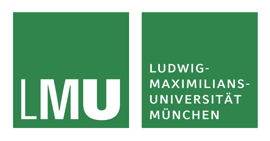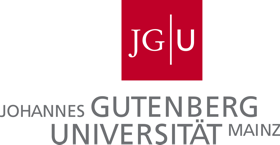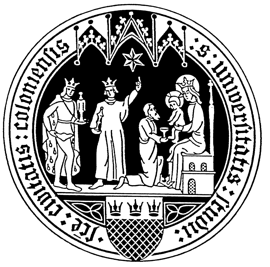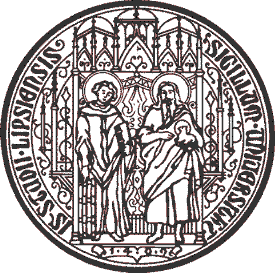
- Written by: Thomas Weise
On August 3, 2017, I presented my research talk Automating Scientific Research in Optimization at the Database Systems and Data Mining Group of Prof. Thomas Seidl at the Institute of Informatics an the Computational Statistics Group of Prof. Dr. Bernd Bischl who is at the Institute of Statistics, both of the Faculty of Mathematics, Informatics, and Statistics of the Ludwig-Maximilians-Universität Munich (LMU) in Munich (München), Germany. The talk was organized by Dr. Markus Mauder.
The Database Systems and Data Mining Group conducts research on data science, data mining, machine learning, artificial intelligence and database technologies. They conduct both fundamental and applied research and aim to supporting partners from many domains such engineering, business, humanities and life sciences in analyzing huge and complex data. Their research topics include explorative data analytics (clustering, outlier detection and interactive data mining), new computation models for data mining (cloud architectures, MapReduce, deep learning, GPU computing, embedded analytics), data mining for complex objects (spatio-temporal data, graphs and networks, multimedia, community detection, trajectory analysis, network queries, pattern mining, dealing with uncertain data, as well as games and sports analytics), process mining (temporal aspects in process models, event identification, process model identification, stream process mining), and similarity search. Since my presentation is mainly on applying data mining and machine learning to extract information from experiments with optimization methods, this provided good grounds for nice discussions after the presentation. They collaborate with partners like Siemens and BMW.
The Computational Statistics Group conducts research in predictive modelling (e.g., non-linear classification and regression), ensemble techniques, statistical and machine learning, statistical computing and computational statistics, model- and variable selection, expensive black-box optimization, bayesian optimization, and statistical software development. They organize the Munich City R courses, R being the one of the most important statistics software packages out there right now and is also used inside of our optimizationBenchmark software. They have contributed a huge set of awesome software packages, including, for instance, a machine learning toolbox for R and an R package for the COCO framework (one of the works related to our talk).
Prof. Bischl is furthermore one of the founders of COSEAL, the COnfiguration and SElection of ALgorithms group, an international group of researchers with focus on algorithm selection and algorithm configuration. These two topics are the exact complement of what I presented in my talk: While my system analyzes how algorithms behave and tries to find reasons (which a researcher can use to improve the algorithm), the work of COSEAL is trying to find ways to automatically find/choose the best behaving algorithms (or algorithm configuration). The group is very active and organizes workshops, competitions, and provides software and benchmark datasets on their fields. (In September 2017, I became a member of COSEAL.)
Giving a presentation at LMU with attendants from both groups was very exciting for me. I came here with the goal to broaden my horizon and to learn where these experts see merits and errors in my presented approach. The after the presentation discussion was indeed very interesting and fruitful.

- Written by: Thomas Weise
On August 2, 2017, I gave my research talk Automating Scientific Research in Optimization at the Algorithmics Group of Prof. Dr. Ernst Althaus at Institute of Computer Science of the Johannes Gutenberg University Mainz (JGU, Johannes Gutenberg Universität) in Mainz, Germany.
The Algorithmics group is mainly known for their contributions to algorithm engineering for combinatorial optimization problems. They focus on the development and implementation of algorithms for interdisciplinary problems, which require both the theoretical development of algorithms as well as their practical implementation. Their application areas are real-time scheduling (as needed in many embedded systems), the verification of discrete-continuous hybrid systems (again needed in embedded systems design), and dense sub-graphs of Steiner tree problems that arise in chip design, bioinformatics, social network analysis, and other areas of research and which they tackle with mixed integer linear programming with cutting planes and dynamic programming. Additionally, they publish several works on genetics-related topics such as sequence alignment problems.
Meeting this group and presenting at the JGU was a very nice experience and I am thankful that the talk was visited well, even though it was in the holiday season.

- Written by: Thomas Weise
On August 1, 2017, I gave the research presentation Automating Scientific Research in Optimization at the research group of Prof. Dr. Rainer Schrader at the Department of Computer Science of the University of Cologne (Universität zu Köln).
This group pursues the goal of building a bridge between real-life problems and the theoretical theorems of pure Mathematics. They closely cooperate with industrial partners to obtain solutions in an application-driven way, by applying research in several fields of Mathematics and Computer Science. Their current work includes contributions to the theory of interval graphs. The knowledge transfer to the industry plays also a very important role for the group as well, as it inspires innovative directions for both their fundamental research and teaching curriculum. The group offers research strength in areas such as complex simulations for economical models and traffic, the development of control models for optimizing process in industrial production, pattern recognition, and the development of multimedia and interactive learning systems. These competences support a variety of partners such as DB Schenker, the Deutsche Bank AG, the Deutsches Zentrum für Luft- und Raumfahrt (DLR), Ford, Lufthansa Systems GmbH, the Siemens AG, the Springer-Verlag, and the WDR TV sender (ARD Sportschau). The fundamental research of the group concerns discrete structures such as partially ordered sets and P4 structures, combinatorial optimization, bioinformatics, and stochastic modeling (such as the aforementioned traffic models).
I was looking forward to meeting Prof. Schrader and his group for quite some time and found the atmosphere in their Tuesday's Research Seminar very enjoyable.

- Written by: Thomas Weise
On July 31, 2017, I held my research talk Automating Scientific Research in Optimization at Swarm Intelligence and Complex Systems Group of Prof. Dr. Martin Middendorf at the Department of Computer Science, Faculty of Mathematics and Computer Science of the University of Leipzig in Leipzig, Germany (official announcement).
The group is focused on the field of complex systems which they tackle with swarm intelligence, bio-inspired computation and optimization, and organic computing. The also tackle issues in phylogeny and reconfigurable architectures for parallel computing. One of the many contributions of this group is a large set of open source software systems, for phylogenesis, RNA and mitochondrial genome analysis using optimization algorithms. I know Prof. Middendorf for more than five years personally and have deep respect for his work: His Population-based Ant Colony Optimization algorithm is the best (non-hybrid) metaheuristic approach that I know for the Traveling Salesman Problem and also a component of the best hybrid approach in all the experiments I have conducted with our TSP Suite in, e.g., our 2014 study.
After I met Prof. Middendorf several times in China and know him since 2011, so it was very nice to finally get to visit his group in Leipzig. It was a really pleasant experience to present in his faculty and I enjoyed the interest and fruitful discussion afterwards, as well as Prof. Middendorf's hospitality.

- Written by: Thomas Weise
On July 28, 2017, I gave my research talk Automating Scientific Research in Optimization at the Enterprise Application Development (EAD) group of Prof. Dr. Jörg Lässig at the Faculty of Electrical Engineering and Computer Science of the University of Applied Sciences Zittau/Görlitz (HZG, Hochschule Zittau/Görlitz) in the historical city of Görlitz, Germany, directly next to the border to Poland. Prof. Lässig is an old friend, from the same university, and we have collaborated on numerous joint projects.
The EAD group is interested in all aspects of enterprise application development. Their leading topics are Energy Efficiency, i.e., supporting companies, users, and even energy providers to measure and reduce energy consumption, and Computational Sustainability, i.e., sustainable information technologies and applications beyond Green IT paradigm, as it covers both technologies for more simple, effective, scalable, robust, adaptable and enhanced software solutions as well as improvements towards more sustainable processes, services and products. The group follows several directions in these contexts, such as:
- Sustainability in Enterprise IT: Enterprise Information Systems, IT Service Management, Enterprise Application Integration, Middleware and Enterprise Service Bus Solutions
- Green Information Systems: Auctions and Electronic Markets, Energy Efficiency, Demand Side Integration, Carbon Footprints
- Logistics and Supply: Enterprise Co-operations, Production Flows, Supply Chains, Virtual Enterprises
- Business Intelligence: Data Analysis, Reporting, Privacy Aspects, Enterprise Analytics
The group collaborates with several companies, such as the European Aeronautic Defence and Space Company, the Bosch Rexroth AG, the CBS Information Technologies AG, the Rapid-I GmbH, Saxonia Systems, ARC Solutions and Deutsche Software & Research. They are a truly unique group which combine strong fundamental and applied research. We have many common interests, for instance on the field of logistics and optimized management, as can be seen from our collaboration history.
Like my visit last year, it was a very, very pleasant experience to visit Jörg's group. The audience was again unusually big, especially for the current vacation time, and the discussions following my talk were both enlightening and interesting.
- Research Talk "Automating Scientific Research in Optimization" by Prof. Thomas Weise at the Otto von Guericke University Magdeburg in Magdeburg, Germany
- Research Talk "Automating Scientific Research in Optimization" by Prof. Thomas Weise at the Clausthal University of Technology in Clausthal-Zellerfeld, Germany
- Research Talk "Automating Scientific Research in Optimization" by Prof. Thomas Weise at the Technische Universität Ilmenau in Ilmenau, Germany
- Research Talk "Automating Scientific Research in Optimization" by Prof. Thomas Weise at the University of Applied Sciences Mittweida in Mittweida, Germany
